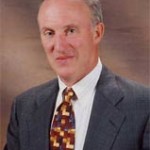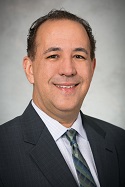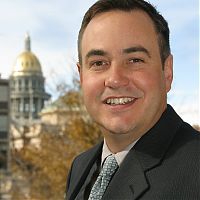Campaign finance, dark money debate take center stage in presidential race
 The topic of campaign finance reform got some serious airtime Sunday as actor George Clooney admitted the amount of money he’s raised for presidential candidate Hillary Clinton is “obscene,” and Vermont Sen. Bernie Sanders on Monday continued to attack Clinton for raising “her money in a different way.”
The topic of campaign finance reform got some serious airtime Sunday as actor George Clooney admitted the amount of money he’s raised for presidential candidate Hillary Clinton is “obscene,” and Vermont Sen. Bernie Sanders on Monday continued to attack Clinton for raising “her money in a different way.”
Sanders, the Democratic socialist who’s providing a surprisingly stiff challenge to Clinton for the party’s nomination, continued to pile up Democratic delegates in Colorado over the weekend, scooping up 25 more to 14 for former New York Sen. Clinton at three congressional district contests Friday and the state assembly Saturday in Loveland.
At the three congressional district contests Friday — including the 3rd (CD3), which encompasses much of the state’s Western Slope — Sanders landed 10 more delegates to six for Clinton. Then on Saturday at the statewide assembly, Sanders picked up another 15 (nine at-large and six party leaders and elected officials, or PLEO’s), while Clinton landed another eight (five at-large and three PLEO’s).
Overall, Sanders got 62.6 percent of the vote to 36.9 for Clinton on Saturday in Loveland. Sanders, who won the Colorado caucuses 59 percent to 40 percent on Super Tuesday (March 1), now has 41 Colorado delegates to 25 for Clinton. But nationally, ahead of Tuesday’s New York primary, Clinton still holds a sizeable lead.

Bernie Sanders
At Friday’s CD3 assembly in Loveland, Crested Butte resident and former state Sen. Gail Schwartz won the nomination over Eagle veterinarian Steve Sheldon for the Democratic right to challenge incumbent Republican U.S. Rep. Scott Tipton. No other candidate won enough delegates (30 percent) to make it on the primary ballot against Schwartz. CD3 is comprised mostly of the state’s mountainous Western Slope and the city of Pueblo on the Front Range.
Schwartz previously represented state Senate District 5, which encompasses a huge swatch of Colorado’s Western Slope, and left office after eight years due to term limits. She faced withering attacks from Republicans and was the target of a nasty dark-money campaign that led her to try and tackle the thorny issue of campaign finance reform at the state level.
The now-defunct Denver i Journal in 2013 produced a series of articles on a dark-money group called Western Tradition Partnership (later American Tradition Partnership) that was responsible for attack mailers against Schwartz, who at the time was a major proponent of renewable energy and a vocal critic of fossil fuels. Part of that series also appeared on The Huffington Post.
With Schwartz now running for U.S. Congress, the Rocky Mountain Post is publishing that series again, starting with Part 1, which first ran on March 18, 2013, and concluding with Part 3, which ran on April 8, 2013:
Scott Shires offers an insider’s guide to gaming, fixing the political system
Part 1 — March 18, 2013
Scott Shires, an Aurora businessman who first registered one of the most notorious political nonprofits in U.S. history, says he’s merely the financial victim of a badly broken political system but he knows how to fix what he called the “symbol of what’s wrong in America.”
In an exclusive interview with the Denver i Journal, Shires said his relationship with Western Tradition Partnership ended about the time that Denver law firm Hackstaff Gessler LLC – the former firm of Colorado Secretary of State Scott Gessler – took over and renamed the 501(c)4 nonprofit American Tradition Partnership in 2010 (pdf).
American Tradition Partnership (ATP) challenged a Montana Supreme Court ruling in favor of that state’s ban on corporate campaign spending — eventually winning a 2012 U.S. Supreme Court case seen by many as validation of the high court’s controversial Citizens United ruling.
Now ATP is the subject of a federal grand jury probe after a cache of documents allegedly showing illegal campaign coordination between the nonprofit and candidates in Montana was found in an Aurora meth house in 2011.
And two Washington, D.C. watchdog groups have filed a complaint against ATP for allegedly misleading the Internal Revenue Service when Shires first sought nonprofit status for the so-called “social welfare group,” which by law doesn’t have to reveal its donors. However, the primary purpose of such groups must be educational and cannot be political.
A ProPublica and PBS Frontline series last fall revealed that when Shires first sought nonprofit status for the group in 2008 it promised not to try to “sway elections” and also asked for its application to be expedited in order to obtain a $300,000 grant from American Furniture Warehouse owner Jake Jabs, who later denied any knowledge of the group.

Scott Shires
Shires, speaking by phone late last week, said he was only the registered agent for WTP because that’s what he used to do for a living. His former company, Campaign Compliance Center, registered campaign committees and other groups, received email invoices, paid the bills and filed required reports with the secretary of state’s office.
“I don’t even know who they are anymore,” he said of ATP. “The board of directors was being expanded and changed at the time that I was let go. They sent a messenger over to pick up my box of financial records and I gave it to them and then they didn’t bother to pay me my last $1,200, so I’ll stand in line with some of those assholes [on the political left, filing complaints]. Pay your damn bills, asshole.”
Shires, now a contract chief financial officer who runs Shires Financial Group, said backlash over ATP wound up costing him business.
“I took unbelievable shit and heat and lost commercial revenue when the attacks began anew for American Tradition Partnership,” Shires said. “I had a commercial life. I had employees. I lost nearly $12,000 a month in revenue when those attacks started because the attacks were, ‘I don’t pay my bills. I’m slime.’”
How to fix the system? Shires, who at one time controlled the checkbooks for 65 different groups registered with the state, said it’s simple:
“Sure, you eliminate any and all committees in the country except the candidate committee,” Shires said, adding corporations would be allowed unlimited contributions as long as they’re fully disclosed. “They can raise all the money they want. They can raise a half a billion dollars. They just have to give it to the candidate and the candidate is responsible for how he spends it.”
That way, Shires argued, “dark money” groups can’t sway elections with campaign ads that voters can’t trace back to donors.
 Many of the donors to WTP and ATP were revealed when Frontline and ProPublica got a Montana court to release a list of previously anonymous contributors. But even now Shires won’t name names of WTP’s board or officers, citing his values as a former U.S. Army ranger: “Code of honor actually means something to me.”
Many of the donors to WTP and ATP were revealed when Frontline and ProPublica got a Montana court to release a list of previously anonymous contributors. But even now Shires won’t name names of WTP’s board or officers, citing his values as a former U.S. Army ranger: “Code of honor actually means something to me.”
Western Tradition Partnership was active in a 2008 Garfield County commissioners race in which unprecedented amounts of outside money poured in at the 11th hour to help defeat two Democrats running on pro-environmental platforms during a massive natural gas-drilling boom.
Another Shires-registered group, Colorado League of Taxpayers, was found guilty of illegal electioneering in that race and fined $7,150 after the Denver-based watchdog group Colorado Ethics Watch filed a complaint. A spokesman for Secretary of State Gessler last week said Colorado League of Taxpayers, which was represented by Gessler’s former law firm, still has an outstanding balance of $8,437 – the original fine plus $1,287 in collections fees.
The same spokesman did not respond to a request for a direct comment from Gessler on the loophole in Colorado law that allows political groups to ignore fines and dissolve without any individual board members or officers liable for penalties levied for illegal campaign practices. In the past, the secretary of state’s office has admitted to being hobbled in terms of enforcement.
“I know the Department of State had considered from time to time asking for an amendment to the Fair Campaign Practices Act that would require committees to have someone be liable for things like this, but it has never become an official legislative proposal, as far as I know,” said Luis Toro, executive director of Colorado Ethics Watch.
“I doubt the current SOS [Gessler] would be in favor of such a proposal. Personally, I don’t think it matters what a particular SOS did before they took office, but I would hope that any SOS would want to make the system more effective.”
Shires doesn’t dispute the unpaid fine but said he’s in no way responsible for paying it.
“I don’t have a problem with the fine being levied in the first place,” Shires said. “Lehman Brothers, Arthur Andersen and Enron — do you think the registered agents should be personally held liable or villainized for the fact that they went out of business owing a lot of people a lot of money? End of my story.”
The fix is simple, Shires said: “Every committee requires two people, two names [when it’s registered].” And at least one of them has to be either an officer or on the board of directors, he added.
Julie Steab, an investigator with the Montana Commissioner of Political Practices, is looking into five separate complaints against WTP/ATP stemming from state legislative races in Montana. Although she said she can’t comment on ongoing investigations, Steab said she keeps coming across the activities of groups first registered in Colorado.
“It seems like Scott Gessler and Scott Shires were kind of hand in hand on a lot of these for a long time,” Steab said.
For years, Shires and Gessler worked in lockstep to register and run a variety of groups.
“[Hackstaff Gessler] would hire me to be the money guy because they knew I’d get it right,” Shires said. “And in most cases I never met anybody. I deliberately never ever asked people to send me copies of your mailing lists. Do not include me on your mailing list, please. I don’t want to know what you’re doing. Not my responsibility.”

Luis Toro
Colorado Ethics Watch’s Toro has asked the office of the Montana Commissioner of Political Practices — which in 2010 found that WTP violated disclosure laws in that state — to turn over the meth house documents to see if there are examples of illegal Colorado campaign coordination between candidates and the nonprofit group. But for now those documents are tied up in the ongoing and highly secretive grand jury investigation.
Shires said labor unions and Democratic political operatives are some of the biggest offenders when it comes to hiding behind issues groups and coordinating with candidates. And he added that the ultimate cover for any wrongdoing is now attorney-client privilege.
“When you form these [issues groups] you have a law firm form them and then it’s attorney-client privilege and everybody, especially Democratic legislative bodies and the trial lawyers’ association, will never, ever, never waive attorney-client privilege for anything,” Shires said. “To do so is probably the end of western civilization.”
Colorado dithers on dark-money reform despite mounting public frustration
Part 2 — March 20, 2013
Colorado’s Democrat-dominated state legislature is hammering out new laws on everything from guns to civil unions to gas fracking, but so far lawmakers have been loath to tackle campaign-finance reform even though for years getting the “dark money” out of local elections has been a top priority.
“I think that the public is very frustrated with the level to which we’re seeing outside groups come in and create such a negative environment under the guise of issues,” said state Sen. Gail Schwartz, a Democrat who narrowly won reelection in 2010 despite a notorious mailer from a nonprofit social welfare group called Western Tradition Partnership.
That group — now American Tradition Partnership after its name was changed by the former law firm of Colorado Secretary of State Scott Gessler – is at the center of a firestorm of controversy in Montana, where lawmakers on Monday voted in favor of a “dark money” bill aimed at forcing such groups to disclose their donors.
“Montana voters need to know that their voice counts most, and we need to send a strong message to the backers of dark money organizations that our elections and our government is not for sale,” said Montana state Sen. Jim Peterson, a Republican who worked with Democratic Gov. Steve Bullock to draft the TRACE Act.
Whether Peterson’s bill will pass another Senate vote and then make it out of the House remains to be seen, and there’s speculation the entire process is pointless because the new law would be deemed unconstitutional by the courts. Still, Schwartz applauds Montana for taking some sort of action against groups like ATP, which made national headlines for its activities in Montana.

Gail Schwartz
Colorado lawmakers, including Schwartz, have tried but failed for years to pass legislation that would compel 501(c)4 social welfare groups to disclose their donors if they engage in political activity. Federal tax laws protect such issues groups from disclosure if their primary purpose is educational, not political, but it’s often difficult to distinguish between the two.
Colorado state Sen. Morgan Carroll, a Democrat, tried unsuccessfully to close a loophole that allows 501(c)4 groups to pass money through to 527 groups (named for another section of the tax code). Those groups, thanks in part to the efforts of Carroll in 2007, have far more stringent reporting requirements than social-welfare groups like ATP.
“We haven’t really found the path to go after [dark money], but we’re grateful that the courts in Montana are willing to do it,” Schwartz said, referring to efforts by the office of the Montana Commissioner of Political Practices, which has repeatedly taken on ATP and other groups for illegal campaign tactics.
An investigator with Montana’s political practices office said she was working on five separate complaints against WTP/ATP for questionable campaign practices in state legislative races, although she could not comment on their status while the cases are pending.
The question of why Montana – a red state – is so much more aggressive than Colorado on the campaign-finance front, including funding a political practices office at all, comes down to money and political will, Schwartz said.
“It’s a budget piece, and it really would be a commitment to spending money on that and then, with our secretary of state [Gessler], the question is how can we effectively put that into place?” Schwartz said.
Gessler is a former Republican campaign-finance and elections attorney whose firm represented WTP/ATP and many other issues groups. He tried unsuccessfully to continue to work for his old firm after being elected secretary of state in 2010. A spokesman for Gessler’s office did not return emails requesting comment for this story.
A federal grand jury in Montana is currently investigating a cache of campaign materials and documents allegedly related to ATP. Found in an Aurora meth house in 2011, the documents were turned over to Schwartz’s husband Alan, an Aspen attorney, and allegedly show illegal coordination between the nonprofit and specific candidates.
The materials were then turned over to the Montana Commissioner of Political Practices, which in turn relinquished them to the grand jury after being subpoenaed. Before that, though, multiple parties – including an attorney for ATP – claimed the documents after a joint PBS Frontline and ProPublica investigation aired last fall. And there was a break-in at the political practices office.
The political watchdog group Colorado Ethics Watch also requested the ATP documents but not necessarily because of potential connections to Gessler.
“I doubt there is anything against Scott Gessler personally, because he was just the lawyer,” said Luis Toro, executive director of Colorado Ethics Watch. “Our interest is more in seeing evidence of coordination between Western Tradition Partnership and candidates here in Colorado.
“That would be barred by the statute of limitations [180 days for campaign-finance violations], but we would want to use it to raise awareness and advocate for more effective regulation of that kind of thing.”
Scott Shires, an Aurora businessman who for years worked closely with Gessler setting up issues groups, was the first registered agent for WTP in 2008 before Gessler’s law firm changed the name to ATP in 2010. In an exclusive interview with the Denver i Journal last week, Shires said the way to fix the system is to ban issues groups altogether.
Shires, whose groups have been fined for illegal electioneering but haven’t paid up years later, said there won’t be any meaningful campaign-finance reform coming out of a Democrat-controlled legislature because they’re just as guilty of gaming the system. As for WTP, he maintains he was just the registered agent.
“They’ve become the symbol of what’s wrong in America,” Shires said. “Somehow the Democratic Party has carte blanc [sic] dodged that bullet and so it rests with Western Tradition Partnership. What can I say?”
Bernie Buescher, a former state lawmaker who served as secretary of state before Gessler, also called the system completely broken and badly in need of a total overhaul. It’s been suggested that the secretary of state’s office needs to be given more power to investigate campaign-finance violations in Colorado because the office is currently hobbled.
“We have strong laws on the books but very weak enforcement,” Toro said, “partly because of the secretary of state’s rules and partly because it’s so difficult for private parties to pursue these claims under the system if you have to file a lawsuit and have your proof already lined up before you even file — with no power of subpoena.”
Dark money in recent years has trickled all the way down to county commissioner races in places like Garfield County, where it’s alleged that oil and gas money helped defeat Democrats who wanted more controls put in place to mitigate the environmental impacts of natural gas drilling.
The sordid story of Mark Jason Seibel
Meth, malice and mayhem in Colorado’s criminal justice, political system
Part 3 — April 8, 2013
Mark Seibel is the Forrest Gump of petty crooks in Colorado, improbably cropping up smack in the middle of some of the state’s most notorious criminal cases.

Mark Seibel (CBS 4 photo).
Seibel was instrumental in secretly taping former Arapahoe County Sheriff Pat Sullivan, who was busted in 2011 for meth possession and soliciting a prostitute, and then in late 2010 he found a cache of campaign fliers in a Denver-area meth house that triggered an ongoing Montana grand jury probe of an infamous political nonprofit called American Tradition Partnership.
But none of the notoriety has garnered Seibel any good will from law enforcement officials, who last month rounded him up in a SWAT-team standoff in Denver. He now faces habitual criminal charges and potentially decades in jail for meth possession in Arapahoe County.
Life for Seibel, 37, definitely has not been a box of chocolates.
Abandoned by his parents in Oklahoma City at the age of 11, Seibel moved to Denver as a teen to try to track them down. Living on the streets and surviving any way he could, Seibel soon ran afoul of the law. His rap sheet is lengthy, but none of his crimes are particularly heinous.
Between 1995 and 2000 Seibel was convicted of four low-level felonies ranging from burglary to drug possession to criminal impersonation to theft by receiving.
“I don’t condone acts of violence,” Seibel said. “I don’t go out and intentionally impose my will on people or perpetuate the cycle of the victimization of the community. I just get picked up for dumb stuff. Like with the drugs … I just had a maintenance-level amount of drugs.”
Well-spoken and clearly intelligent, Seibel keeps his massive case file on a cell phone and laptop computer. Moving from wifi hotspot to hotspot, he’ll bombard a reporter with documents he says show endless breakdowns in the state’s criminal justice system – including his diagnosis but lack of treatment for a whole host of mental-health issues.
“I self medicate, and when I’m on my meds I’m fine – that’s the only time that I don’t use [illegal] drugs — but when I don’t have medical care or some sort of direction then it’s easier for me to fall back into other things,” Seibel said.
“I spend most of my day just trying to survive,” Seibel said of his existence as a fugitive. After bonding out of the Denver jail last month, he missed a court date in Arapahoe County on April 1 and now has another outstanding warrant with his bond set at $65,000. And he has an April 11 revocation hearing for probation violations on misdemeanor charges in Larimer County.
Poster Child
State Sen. Pat Steadman, D-Denver, says Seibel is the “poster child” for a bill he’s running to reform Colorado’s sentencing structure for drug offenses.
Steadman calls Arapahoe County – or “Arapahell” as it was dubbed by Westword in 2011 – the “worst jurisdiction on earth to be caught in. We went from ‘Hang-’em-High [District Attorney] Carol Chambers’ to Hang-’em-High [George] Brauchler’.”
What many in the state deem overzealous prosecution of habitual criminals for nonviolent offenses and drug possession leads to sentences known as The Big Bitch (four times the maximum) and The Little Bitch (three times max).
Arapahoe County prosecutors and all Denver-area police are out to get him, Seibel contends, because he made the tapes that led to the downfall of former Sheriff Sullivan. Seibel says his ex-girlfriend was a “fag hag” whom Sullivan befriended and released from jail. It was at her house, Seibel claims, that he made the first tapes of Sullivan’s gay lover talking about meth use.
Seibel says Denver police were talking about him being “the guy who got Sullivan” when they arrested him last month, and he believes Arapahoe County officials want revenge.
“They intend to get me in the jail once named after the predator sheriff and probably kill me,” Seibel said. “To beat them to it is the only way to win.”
A spokeswoman for the Arapahoe County DA did not return a call requesting comment.

Pat Steadman
Steadman says people like Seibel need treatment for addiction, not more jail time.
“If [my bill] would have happened for your poster child, Mark Seibel, when he was first in trouble back in the 90s, maybe he wouldn’t be in this spot today,” said Steadman, who introduced SB 250 (pdf) on April 1. “I’m sorry we didn’t have the resources and that philosophy back in the 90s. We’re a little late trying to get to a different approach for how we view drug offenses in the criminal justice system.”
SB 250, which is being weighed in the Senate Judicial Committee, is the product of a task force study stemming from legislation Steadman championed last session. It would create a separate sentencing structure for drug felonies and also allow first-time offenders to have such felonies reduced to misdemeanors. The bill, and companion legislation (SB 253 pdf), builds on a law Steadman helped pass in 2010 that reduced the number of drug offenders in prisons and diverted those funds to community corrections, counseling and treatment.
“Hopefully, we can continue this philosophical shift where we look at drug offenses differently and realize that substance abuse disorder, addiction, is a medical issue that drives behavior that we consider criminal, but it’s not the same as the felons who are hurting people or murdering or raping or kidnapping,” Steadman said. “Just separating them out is a huge philosophical shift.”
Fuckers, fuckees
In late 2010, Seibel was the last man standing in a Denver-area meth house, cleaning up after a police raid, when he came across buckets of campaign mailers for state legislative races in Montana. Well-tuned to incriminating paper trails, Seibel figured he might be able to parlay the cache of suspect attack ads and internal communications into some sort of deal.
He mapped out a CSI-style tree connecting all the players, from politicians to candidates to the 501(c)4 now known at American Tradition Partnership (ATP) but first registered in Colorado in 2008 by Republican political operative and Aurora businessman Scott Shires. In 2010, the name of the “social welfare” group was changed to ATP by a lawyer for Hackstaff Gessler (pdf), the former law firm of Colorado Secretary of State Scott Gessler.
“Pardon my French, but I called them the ‘Fuckers’ and the ‘Fuckees,” Seibel said of the grid he mapped out.
The documents, which allegedly show illegal coordination between Republican candidates in Montana and WTP/ATP, eventually became the subject of a PBS Frontline documentary and a ProPublica investigation in the fall of 2012. But now they’ve been locked up by federal prosecutors in Montana while a grand jury weighs the evidence.
The office of the Montana Commissioner of Political Practices is considering five separate complaints against the nonprofit; two Washington watchdog groups have filed complaints with the IRS stemming from an allegedly fraudulent letter naming American Furniture Warehouse owner Jake Jabs; and lawmakers from Montana to Colorado are weighing various campaign-finance and election reform laws in response to the group’s activities.
Much of that antipathy comes from a WTP/ATP’s successful lawsuit that overturned Montana’s 100-year-old anti-corruption law – a decision that was appealed all the way to the U.S. Supreme Court. The high court found in favor of the nonprofit and consequently its own controversial Citizens United ruling in favor of corporate campaign speech and unlimited political spending.
But it all started with Seibel finding those documents and turning them over to Aspen attorney Alan Schwartz, the husband of 2010 WTP smear target and state Sen. Gail Schwartz, D-Snowmass.
“I evaluated how dirty politics affects people on down the line and I decided to roll with the Fuckees, who surprisingly were outnumbered like three to one on the tree that I built,” Seibel said, adding Schwartz seemed to be the most pissed-off. “I figured like a scorned female senator, why wouldn’t you want one of those on your side? She’d probably move mountains.”
Instead, Seibel said not much has come of the entire affair, other than the documentary and his relative notoriety. Representatives of Schwartz’s law firm recently advised Seibel to apply for a public defender and offered to provide assistance with his case.
Bad, bad people
Shires last month said he worked with Gessler for years, registering various campaign groups, from social-welfare nonprofits to political committees, but he maintains that – no matter what the grand jury in Montana comes up with – he was always “just the registered agent” and Gessler was always “just the attorney,” with attorney-client privilege to fall back on.
Seibel said the dirty campaign mailers and attack letters he found in the meth house were there because his ex-girlfriend put them there after obtaining them from a friend who stole a car in Denver belonging to Montana resident Allison LeFer. Allison and her husband, Christian, ran a Montana company called Direct Mail & Communications that processed many of the mailers.

Elizabeth Sheron
Elizabeth Sheron, a former employee and current Miss Colorado, called the LeFers “bad, bad people” who verbally abused workers and engaged in political “character assassination” for groups like Western Tradition Partnership.
“Basically, what they described that they do is they find [candidates] that go along with their agenda, people that no one’s ever heard of, and they bragged, ‘Yeah, we get them elected,’” Sheron said, adding she was surprised to find out Gessler’s former law firm was involved with WTP/ATP. The address for the Hackstaff Law Group is still listed as the address for ATP.
“I’ve met him a couple of times. I didn’t meet him through [the LeFers], though. I just met him at totally unrelated things,” Sheron said in a previous interview. “I didn’t even know [he was the WTP/ATP attorney]. I wouldn’t have voted for him [in 2010].”
Gessler’s office has failed to respond to numerous attempts to interview him regarding WTP/ATP and the ongoing grand jury probe. In an email, Allison LeFer politely declined to discuss Sheron’s allegations: “Thank you for contacting me. I have no comment at this time.”
Shires says he knew about the Montana operation but that’s about it.
“I knew of its existence, that’s all,” Shires said. “I’ve met them all. I know them. Their role, their exact job description, their actual duties as defined by other people, I could care less.”
Mark Seibel, meanwhile, hopes something positive for him will eventually come of all his whistle-blowing efforts – that some state lawmaker somewhere will take a personal interest in his case.
“Just as dirty politics were utilized against them, I believe that I too am the victim of a similar situation,” Seibel said. “I fully intended to have them look into my situation, and that’s what they agreed to do, and in the end it just seemed like I’ve been shuffled around.”


Latest posts by David O. Williams (see all)
- Democratization or ruination? A deep dive on impacts of multi-resort ski passes on ski towns - February 5, 2025
- Western Rail Coalition looks to revive passenger rail service on long-dormant line connecting Colorado mountain towns - January 22, 2025
- Colorado ski town looks to dig deep, diversify energy sources as climate change threat looms - January 10, 2025

You must be logged in to post a comment Login